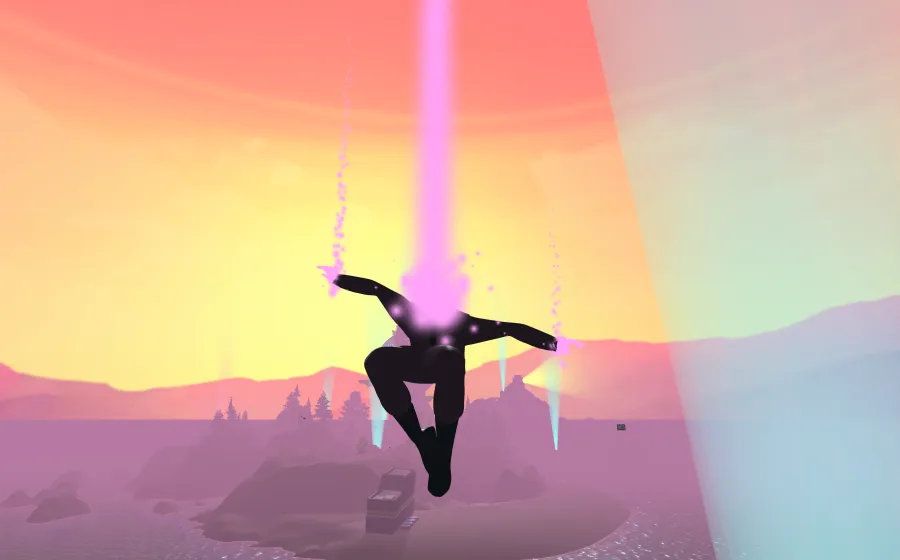Exhibition Metaverses: Realities in Transition
Date
Venue
Price
Free access
Category
Format
Institution
Metaverses: realities in transition is based on the premise that visual environments are a reality increasingly present in our lives. The term metaverse was coined in the science-fiction novel Snow Crash, published in 1992. The author, Neal Stephenson, was looking for a word to describe the cyberspace of the future. With the metaverse, he predicted the virtual experience, but he also showed us a dystopian future, where governments had lost their power over big corporations and global economic powerhouses.
A metaverse is an interconnected network of tridimensional and immersive visual environments, something possible thanks to a convergence of technologies which allows interactions with digital objects and avatars. However, the concept of metaverse goes beyond that, as it is a post-reality universe which expands physical reality and blends it with digital reality.
Today there are metaverses such as The Sandbox or Decentraland, which get close to the concept developed by Stephenson in his novel: big international markets of digital and phygital products, the latter being digital versions of physical objects. Besides, on October 2021 Facebook announced Meta Platforms, a new colonizing name for their applications of social experiences online, in search of new territories. It is taken for granted that metaverses will be the new Internet and, as the first internauts surfed the hyperlinks, the metanauts will explore this new world in an immersive way.
We need a new understanding of the digital media landscape we are entering. An understanding and a practice to approach critically the new challenges it poses, and to act out its political implications. To understand the relationships between the immersive virtual space and the physical space. It is undeniable that both conform a single "reality", without any break in continuity. Metaverses are machines of affective production, and they will affect subjectivities. New sceneries which consumption wants to colonize with an instant promise of happiness
This exhibition shows a selection of metaverses proposed by and for artists, mainly developed during the COVID19 international crisis, as an example of new spaces of creation and resilience. Five metaverses and an installation compose a walkthrough which starts with The Subject Changes, a work of generative art focused on a character constantly changing. Then we are invited to explore a virtual village in H.O.R.I.Z.O.N., to walk around a virtual landscape full of digital works of art in Planet L.E.V. Matadero, to listen to several sound artists in AFTERLIFE, and to enjoy club culture in projects such as Tivoli Cloud VR and Club Matryoshka.
Metaverses are a reality, but a multiple, complex one, and not the ultimate reality. It is up to us to design the digital future we want, and to provide the resources in order to have creative, accessible, sustainable and diverse metaverses.
Metaverses: realities in transition shares interests with other festivals and digital art shows such as ArsElectronica in Linz, Octobre Numérique in Arles and The Biennale des imaginaires numériques Chroniques in Marseille, to name just a few, and takes its name from Realities in Transition, a project created in collaboration with L.E.V. Festival, and recently approved by Europa Creativa.
Artistic team and specifications
-
Curated by
L.E.V. Laboratorio de Electrónica Visual
-
With the support of
Ministerio de Cultura de Taiwán, la Oficina Económica y Cultural de Taipéi en España, y el Foro Cultural de Austria
-
Cofinanced by
Unión Europea

